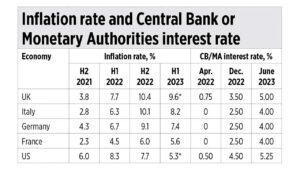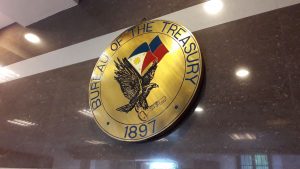Philippine court blocks testimony in Marcos ill-gotten wealth case

THE PHILIPPINES’ anti-graft court has rejected a government plea to allow it to present a new witness in an ill-gotten wealth case against business associates of the late dictator Ferdinand E. Marcos, Sr. and his wife Imelda.
In a seven-page resolution dated June 13, the Sandiganbayan Third Division barred state prosecutors from having a stenographer identify stenographic notes from a 2019 case, which is based on a similar set of facts, since it violated the defendant’s right to due process.
“To permit the plaintiff now to introduce the testimonies… through mere identification of their transcript of stenographic notes by an officer of the Third Division would unduly deprive herein defendants their right to be confronted at the trial by and to cross-examine the witnesses against them,” Associate Justice Lorifel Lacap Pahumna said, citing the 2019 Sandiganbayan case.
The Marcos family’s business associates were accused of buying shares of Eastern Telecommunications Philippines, Inc. so they could serve as dummies to acquire ill-gotten wealth.
In 2019, the anti-graft court ordered a different set of Marcos associates to return their shares in the telecommunication company and in other investment firms to the government, saying these were ill-gotten.State prosecutors filed the motion since they could not get the nine witnesses to testify in court since they have either passed away, have gone abroad or were unwilling to testify.
“Needles to state, the instant case and Civil Case No. 009 are closely related or interwoven as they both seek the ill-gotten nature of the shares,” the court said. “Yet, the defendants herein were not impleaded nor involved in the proceedings in Civil Case No. 009.”
In February, the Sandiganbayan junked an ill-gotten wealth case against other business associates of the Marcos family for insufficient evidence.
The Presidential Commission on good government (PCGG) had accused them of illegally accumulating funds and properties.
A popular street uprising toppled the dictator’s regime in February 1986, forcing him and his family to flee into exile in the United States.
That same year, his successor, the late Corazon C. Aquino set up the PCGG to go after ill-gotten assets of the elder Marcos, his family and cronies that were amassed during his two-decade rule.His son and namesake is now the Philippine president.
The Sandiganbayan last month denied the Marcos family’s appeal to regain control of some frozen bank accounts and properties seized by the government.
Experts have said an unfavorable judgment against the Marcoses could lead to a constitutional crisis since law enforcers are under the president.
In 2003, the Philippine Supreme Court awarded the Philippine government $658 million (P37 billion) of the dictator’s frozen Swiss bank deposits. — John Victor D. Ordoñez




